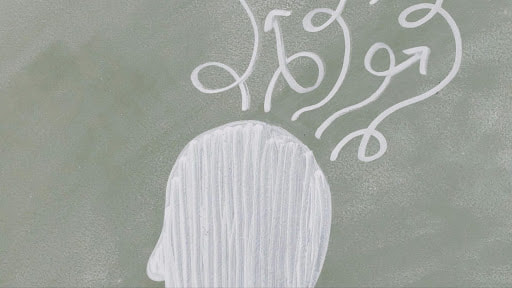|
By Idunnu Oke The concept of stress isn’t unipolar; neither does it have roots in a singular, unabridged factor. Concerning stress, the lines can be drawn from environmental factors and influences, which eventually trickles down to an injectable response in our minds and bodies. In most cases, stress is elicited by triggers that, in the end, evoke burnout, a definitive state of mental and emotional exhaustion. In this article, we’ll be diving deep into the relationship between stress and burnout and how they lead to mood disorders. Come on! The Connection Between Stress and Burnout Recently, stress and burnout have been inextricably attached to the inaptitude in the work-life balance. According to research, most stress and burnout situations materialize in many job conditions and environments. Looking at the recent statistics that 89% of workers have dealt with burnout in the past year, there is a narrative that the weight of workload workers are exposed to cause most burnout experience. Naturally, stress is borne out of being overwhelmed and subjected to tension. However, the effect of stress can not just be felt on the body which results in physical tiredness, but also on the mind, leading to feelings of anxiety, insomnia, worry, mood changes, and depression. Furthermore, the constant and extensive exposure to stress causes an unwitting feeling of cynicism, a significant indicator of burnout. In turn, there begins an occurrence of reduced productivity and the inability to function optimally. Biological Mechanisms Underlying the Development of Mood Disorders in Response to Stress and Burnout Mood disorders are the new pandemic, causing chaos in every corner of the world. According to a 2023 publication by PNAS, It was known before the COVID-19 pandemic of 2019 that anxiety disorders and major depressive disorder (MDD) are among the world's biggest health problems. Undoubtedly, these mood disorders alter the psychological and neurobiological framework of humans. However, there is a biological trajectory through which the end cause of these disorders follows, which is the biology of stress, the interaction of environmental, developmental, and biological influences on an organism. In all of these, it is crucial to understand how resilience, coping skills, susceptibility, and neuroplasticity affect the stability of our moods. Furthermore, the brain plays a complex yet essential role in adapting to stress and stressful environments by releasing hormones, the activity of the autonomic nervous system, and the hypothalamic–pituitary–adrenal axis (HPA axis). There is a stack difference between negative and positive stress; the former is a kind of stress that becomes uncontrollable, excessive, and turns out to be unhealthy, while the latter is “good stress” that provides fortitude for neuroplasticity. However, negative stress, which can also be referred to as chronic and traumatic stress, causes susceptibility to mood disorders. The mechanism by which this kind of stress causes mood disorders is by disrupting the normal stress response in the nervous system, which automatically triggers anxiety and mood disorders. Effects of Stress and Burnout on Mood Disorders Whether you are a 9 to 5er who spends most of the time sitting in front of a desk with several deadlines to meet or you’re a stay-at-home mum circling through looking after your kids all day long, or you’re a “think it, do it” person that’s constantly under the pressure of meeting up with tight deadlines and with all you do, it's like there is no sense of fulfillment anymore. You are probably on your path to experiencing burnout. And you could be feeling this way:
“I feel like staying in bed all day.” “Why do I feel so tired?’ “How did I suddenly lose joy in listening to customers?” “I don’t think I am fit for this job anymore. I suck at it now.” As someone experiencing burnout, you would feel burdened by your current situation. Your mind will steadily get dysfunctional due to feeling emotionally drained, which is a function of consistently working yourself out and not refueling. Burnout is temporary; it doesn't rear its head in a day, but it automatically disrupts your mood even in day-to-day activities. Feelings of anxiety, excessive worry, and overthinking will subtly begin to creep in till you gradually lose control over your mental well-being and your motivation fizzles out. Emotional symptoms of burnout:
Here is a case study that illustrates how stress and burnout causes mood disorders: Case Study 1: Sarah’s transition from stress to depression A 28-year-old marketing executive, Sarah Wells had always had a strong sense of ambition. She loved to execute on-point and spot-on projects with zero frictions. One of the most interesting things about Sarah is her ability to go into the littlest detail about whatever she does and produce excellent results. But as her workload grew and deadlines became closer, she discovered that she had to give up her time to work long hours. She tried, but she was always anxious and overwhelmed by the amount of pressure that pounded on her. Gradually, Sarah started to exhibit signs of burnout, such as cynicism, fatigue, and a feeling of helplessness. She woke up each day with feelings of dread; She couldn’t help it! Sarah's condition grew worse as her burnout lasted. She stopped enjoying the things she used to like doing and avoided social situations. She started having trouble falling asleep, and she was always depressed and discouraged. She began to suck at her work too. Sarah sought assistance from a therapist after realizing the depth of her problems. She was diagnosed with severe depressive disorder. Overtime with critical monitoring and intervention, she was able to control her depression and regain her feeling of balance by combining therapy, medicine, and lifestyle modifications. This allowed her to go back to a more balanced and satisfying existence progressively by creating more constructive coping mechanisms. Practical Steps To Tackle Burnout:
Conclusion Your health matters much more, so also your emotional health. One of the threatening factors to your mental health you have to pay attention to is how much stress you are exposed to. Burnout flows out of the root of stress. The feeling of apathy you suddenly feel can be reversed as long as you take the necessary precautions.
0 Comments
|
Archives
May 2024
Categories |



 RSS Feed
RSS Feed